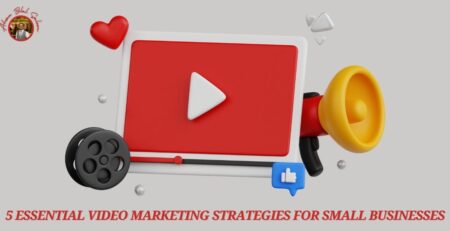Best Tools And Platforms For Content Marketing Automation
In today’s fast-paced digital landscape, content marketing has become a critical element for building brand awareness, driving engagement, and converting leads into customers. However, consistently producing, managing, and distributing high-quality content can be time-consuming and overwhelming. This is where content marketing automation becomes possibly the most important factor. By using the right tools and platforms, marketers can streamline processes, boost efficiency, and focus on the strategic aspects of their campaigns.
In this article, we’ll explore some of the best tools and platforms for content marketing automation that can help you enhance your content strategy, increase productivity, and deliver better results.
HubSpot
HubSpot is one of the most popular all-in-one marketing automation platforms, offering a range of features that make it ideal for content marketing. Its content management system (CMS) allows users to create, optimize, and distribute content seamlessly. HubSpot also provides tools for SEO, social media scheduling, email marketing, and lead generation, all integrated within a user-friendly interface.
Key Features:
- Content creation and optimization
- Automated email workflows
- Social media scheduling and monitoring
- Built-in SEO recommendations
- In-depth analytics and reporting
HubSpot is an excellent choice for businesses of all sizes looking for a comprehensive solution that covers every aspect of content marketing, from planning to performance tracking.
CoSchedule
CoSchedule is a versatile tool specifically designed to streamline content marketing workflows. It combines a marketing calendar, project management tools, and automation features to help teams stay organized and on track. The platform allows users to plan, schedule, and publish content across multiple channels from a single interface.
Key Features:
- Drag-and-drop marketing calendar
- Social media scheduling and automation
- Team collaboration and task assignment
- Analytics and performance tracking
- Content optimization tools
CoSchedule’s intuitive design makes it a great choice for marketers looking to automate content planning and publishing while ensuring team collaboration remains seamless.
Hootsuite
Hootsuite is a leading social media management platform that offers powerful automation features for content distribution. It allows users to schedule posts across various social media platforms, track performance, and engage with their audience—all from a centralized dashboard. With Hootsuite, you can automate your social media content, ensuring consistent posting and engagement without manual effort.
Key Features:
- Bulk scheduling of social media posts
- Real-time audience engagement
- Social listening and monitoring
- Customizable reporting and analytics
- Team collaboration tools
Hootsuite is perfect for businesses that rely heavily on social media as part of their content marketing strategy and need a reliable tool to automate and manage their posts.
Buffer
Buffer is another popular social media automation tool that helps marketers schedule, publish, and analyze content across multiple platforms. Its user-friendly interface and focus on simplicity make it a favorite for small to medium-sized businesses. Buffer also offers a content calendar, making it easy to plan and organize your social media strategy.
Key Features:
- Easy scheduling for posts on Facebook, Twitter, LinkedIn, and Instagram
- Content calendar for organization
- Analytics to measure post performance
- Browser extension for quick content sharing
- Team collaboration features
Buffer is a great choice for businesses seeking an affordable, straightforward solution for automating their social media content marketing.
Mailchimp
Mailchimp is a powerful email marketing platform that also offers marketing automation features, making it an essential tool for content marketers. With Mailchimp, you can make email crusades, section your crowd, and set up mechanized email work processes to support leads. It also integrates with various platforms, allowing you to sync your content marketing efforts across channels.
Key Features:
- Email campaign creation and scheduling
- Audience segmentation and personalization
- Automated workflows for lead nurturing
- Detailed email performance analytics
- Integration with e-commerce platforms and CRM tools
Mailchimp is ideal for businesses that want to automate email marketing as part of their overall content strategy, ensuring that the right content reaches the right audience at the right time.
Trello
While primarily known as a project management tool, Trello can be a powerful content marketing automation platform when used effectively. Its visual boards and card system allow teams to manage content production workflows, from brainstorming ideas to publishing the final content. Trello coordinates with different applications and apparatuses, taking into consideration consistent substance mechanization.
Key Features:
- Customizable boards, lists, and cards for content organization
- Team collaboration and task management
- Integration with content tools like Google Docs, Slack, and Zapier
- Automation via Trello’s “Butler” feature for repetitive tasks
- Content calendar integration
Trello’s flexibility makes it an excellent option for marketers looking to automate content planning and streamline their production workflows.
Zapier
Zapier isn’t a content marketing tool in itself, but it can automate your entire content marketing process by integrating and connecting different apps. Zapier allows you to create “Zaps,” which are automated workflows that link two or more apps together, making tasks like content distribution, social sharing, or email notifications completely hands-off.
Key Features:
- Automation of repetitive tasks with “Zaps”
- Integration with over 3,000 apps, including Slack, WordPress, and Mailchimp
- Trigger-based workflows for content publishing and sharing
- Multi-step workflows for complex automation
- No coding required to set up automations
Zapier is an indispensable tool for businesses looking to connect and automate various parts of their content marketing process without needing technical expertise.
WordPress with Plugins
For content advertisers zeroed in on writing for a blog and site content, WordPress stays the go-to stage. Combined with automation plugins like Jetpack, Yoast SEO, or CoSchedule, WordPress becomes a powerful hub for content creation, optimization, and publishing. These plugins allow for automated SEO improvements, content scheduling, and social sharing, streamlining the entire process.
Key Features:
- SEO automation with Yoast SEO
- Content scheduling with editorial calendar plugins
- Social media integration with Jetpack or CoSchedule
- Customizable themes and templates
- Analytics and performance tracking
WordPress, when paired with the right plugins, can help you automate various content marketing tasks, making it easier to manage large volumes of content.
Conclusion
Content marketing automation is no longer a luxury—it’s a necessity. By leveraging the best tools and platforms, you can save time, enhance productivity, and create a more strategic approach to your content efforts. Whether you’re looking to automate social media, email marketing, or content production, there’s a tool out there to fit your needs. Explore the platforms mentioned above and choose the one that best aligns with your content marketing goals.










